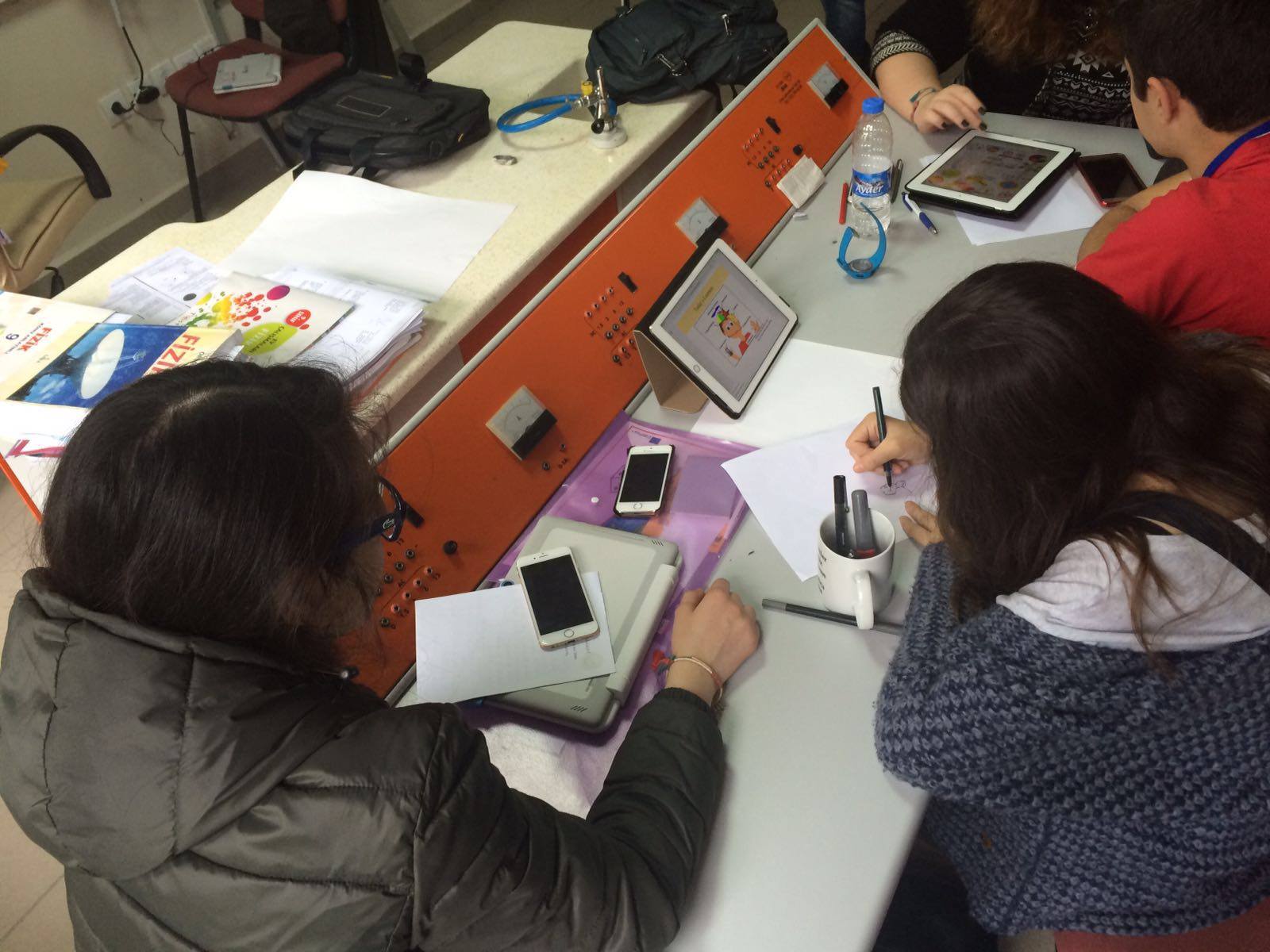Teachers' Workshop
Boost Up Your Creativity
At this workshop 29 creativity and online content creation tools were introduced to the teachers and they are asked to create their own products during the hands on session.
Web Tools For Teachers

Students' Workshop
Online Internet Resources


There are a number of different online courses popping up, most of which seem to simply serve as repositories for old lecture videos or course materials. However, some online course materials actually offer a more personalized experience that will be critical in successful education systems of the future .
Online Resources
Online Video Lectures
- MIT Open Courseware (OCW): http://ocw.mit.edu/Comprehensive repository of materials from many classes at MIT. However, there is little course-to-course standardization and most lack user interaction/customization and focused visualizations.
- Khan Academy: http://www.khanacademy.org/Started by an MIT alum to help teach his cousins via YouTube, it now serves 1800+ courses in mathematics, science, finance, and history.
- Berkeley Webcasts: http://webcast.berkeley.edu/cour..., also available as podcasts from iTunes: http://itunes.berkeley.edu/
- Stanford Engineering Everywhere (SEE): http://see.stanford.edu/default....Another collection of lectures from a small private school across the bay.
- Udemy: http://www.udemy.com/User-generated videos on a broad range of topics.
- Multimedia Education Resource for Learning and Online Teaching (MERLOT): http://www.merlot.org/merlot/Links to a number of great resources for both learning & teaching across a range of academic disciplines. Includes guides, videos, and visualizations, though organization could be much better.
- Periodic Table of Videos: http://www.periodicvideos.com/A Mendeleevian repository of youtube videos about each element. Pretty cool.
- Academic Earth: http://academicearth.org/Aggregates and organizes online video courses - includes materials from many of the above resources.
- Nixty: http://nixty.com/Similar to Academic Earth, tries to make free online content more organized and accessible.
Interactive & Personalized Courses
- MIT Electricity & Magnetism (8.02T): http://web.mit.edu/8.02t/www/802...An experimental course format that offers some great supplementary material, including comprehensive notes and interactive visualizations. I think more courses should offer material like this.
- Carnegie Melon Open Learning Initiative: https://oli.web.cmu.edu/openlear...Includes some downloadable files, as well as periodic quizzes to benchmark progress in a range of subjects.
- EduFire: http://edufire.com/Sign up for direct lessons with user-rated experts. They also offer some more traditional courses as well as flashcards (not all lessons are free).
- Better Explained: http://betterexplained.com/This is primarily text-based, but the author does a good job of breaking concepts down in the way he would've liked to have had them explained to him.
- Journal of Visual Experiments (JOVE): http://www.jove.com/This is more geared towards biological experiment education - but is definitely useful for scientific endeavors.
- IBM Courseware: https://www.ibm.com/developerwor...Though primarily software/IT oriented, they seem to link to a number of valuable resources.
Free Textbooks
- Flatworld Knowledge: http://www.flatworldknowledge.com/Still building up its inventory, but will hopefully incorporate interactive elements into its free electronic textbooks.
- WikiBooks: http://en.wikibooks.org/Relatively few finished textbooks, but if they can achieve 1/10th the success that Wikipedia has it should be quite interesting.
- ChemWiki: http://chemwiki.ucdavis.edu/Texts geared towards chemistry education.
Flashcard Learning
- Smart.fm: http://smart.fm/This is more geared towards memorization, but it applies a few valuable principles such as material customization and spaced repetition (more info. in my blog post).
- Study Blue: http://www.studyblue.com/Build your own flashcards & notes - access from computer or phone.
- CoboCards: http://www.cobocards.com/Insert images, formulas, and tables.
- StudyStack: http://www.studystack.com/Find & create simple flashcards.
- Google Body: http://bodybrowser.googlelabs.com/OK, not really flashcards or a course per se, but this is an awesome supplemental material for any physiology or anatomy course. And it can be used like a giant, interactive stack of 3D flash cards.
- Anki: http://ankisrs.net/Spaced repetition learning with electronic flashcards.
Language Learning
- LiveMocha: http://www.livemocha.com/Language learning courses with audio, images, & text. Get feedback from native speakers through their social component (not all lessons are free).
- WordSteps: http://wordsteps.com/Learn 20 words in 15 minutes every day.
- Lingt: http://lingt.com/Recently acquired by Dictionary.com, will be re-released as their flashcard product.
- Busuu: http://www.busuu.com/Language learning community with a really slick interface and lots of interactive elements.